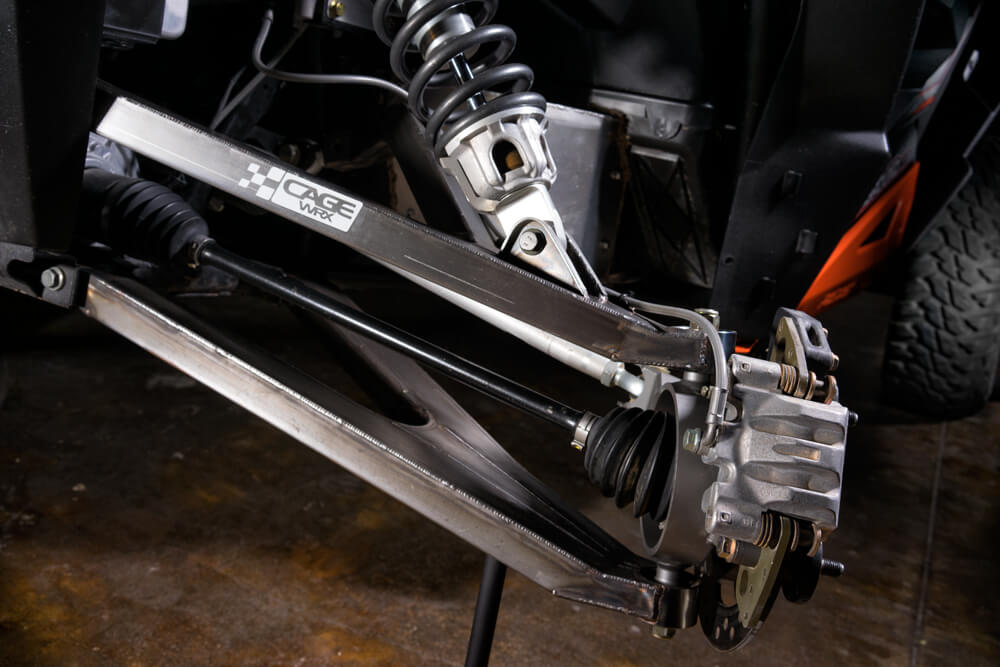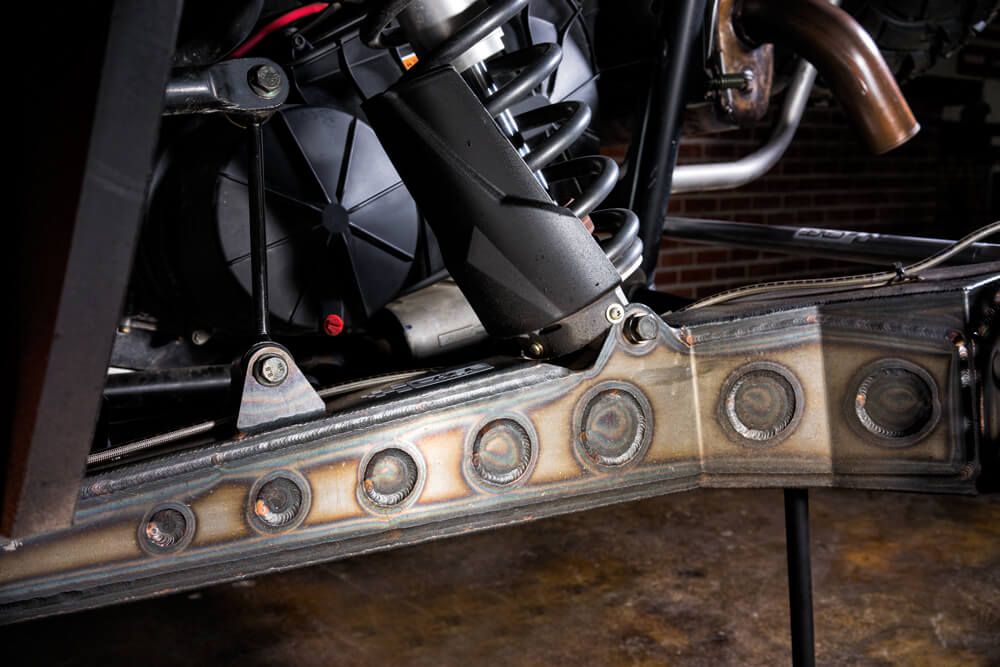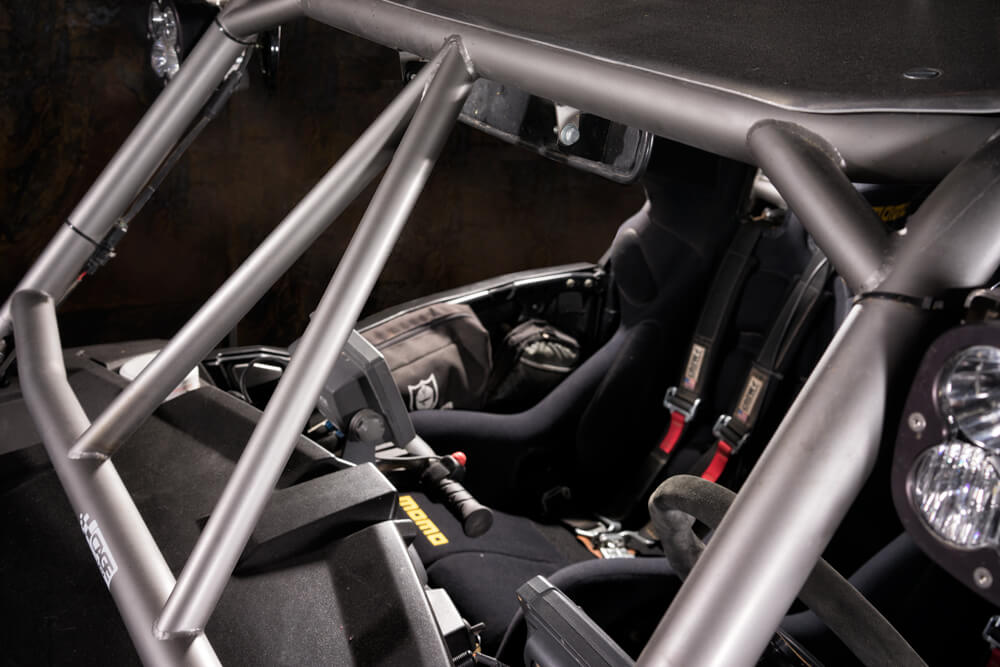Who the hell is Chad Ragland
If a man is defined by his actions than Chad Ragland is well on his way to becoming a successful one. Son of off-road legend Larry Ragland, Chad has recently stepped out of his fathers shadow and made a name for himself in the business side of off-road with the launch of his UTV aftermarket parts company, CageWRX. Racer, father, businessman. We got to sit down with Chad and talk about the past, present and future.
Where are you from and where’d you grow up?
I was born in Phoenix, Arizona and stayed in Phoenix all the way through high school. My parents never moved, really. After high school, I went to college in Flagstaff only about 2 hours north of Phoenix and was there for 4 years. I moved back to Phoenix, then went to Colorado for a little bit but have been in Southern California for over a decade now.
How did you originally get involved in off-road racing?
Just by being the number one activity my parents were engaged in. My dad was racing motorcycles when I was a newborn and the first 5 years of my life was full of motorcycle races with my dad. That progressed into buggies. I didn’t know anything else, so for me motorsports was off-road. It was either motorcycles or buggies.
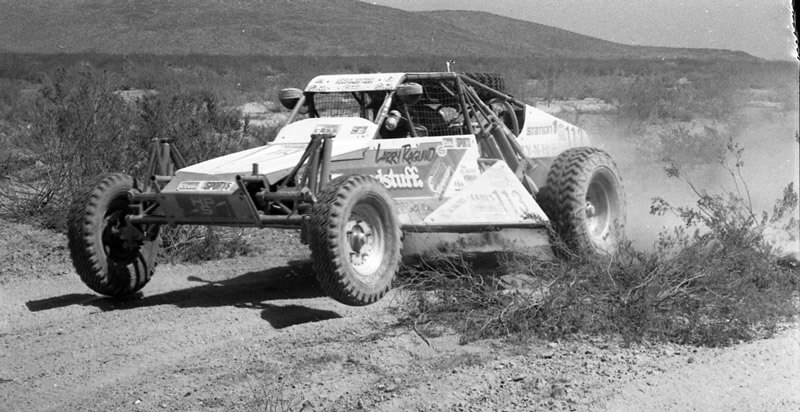
Tell us a little bit about what it was like growing up racing with your dad, who arguably became the most successful off-road racer in history?
My Dad was really successful at it almost from the get go. When I was a little kid and we first started going to the races, he didn’t win his first couple but I think he won his third or fourth SCORE-International race. Then he won the one right after that. He won two in a row in 1980, so I was only about 10 years old at the time. He was successful from that point on and then for another five years he was on his own and he won some championships where he was campaigning his own buggy ub the early 90’s. He got picked up as a factory driver for General Motors. That was a true factory racing program. Way different from today. I don’t think people understand what a true factory program is. When it has the backing of an automobile company, it’s run completely different than just something with a big budget. It’s more than just a budget. It has engineers and consequences. There’s a reason for everything.
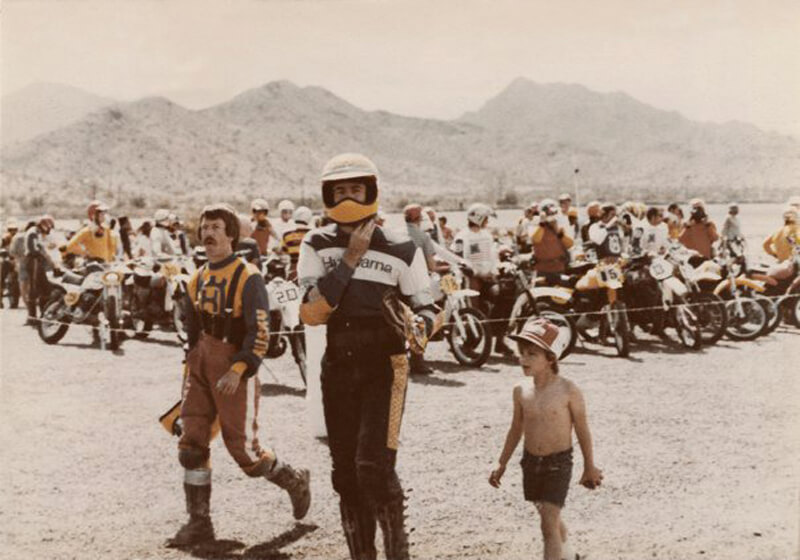
Racing went from my dad doing it kind of as a hobby I would say, to being a professional (paying for it himself) then to being a paid driver. I got to see both aspects of off-road from completely different angles. One being a privater where you’re all on your own and then one being a paid driver where you have to answer to a boss and you’re an employee for someone.
What was that like growing up and being insider to your fathers career?
I think, like any kid, it’s all you know. I look back on it and it was an awesome opportunity for not only my dad obviously, but for me too. At the time, I was an only child so my influences were what was happening to me at the time. I loved it. For me it meant going to races and going testing. It also meant keeping my mouth shut so I could learn and listen because there were so many smart people. I wanted to be out there and driving with him for sure and be a part of the team but you know I was really just a little kid.
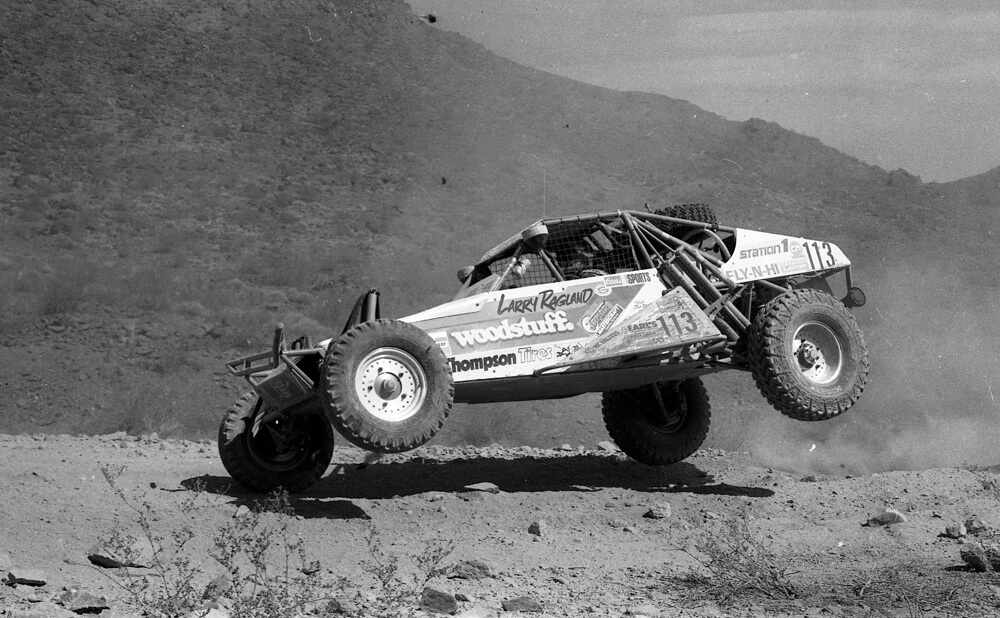
What was your best memory from that era of your childhood watching your father race?
All of the Baja 1000’s when he was able to put five Baja 1000 wins together in a decade and the final one there in 1999 that was a pretty big deal. No one else had done this and it was pretty special. We had big backing at that point. We had not only General Motors but BFGoodrich Tires was heavily involved in the program. It was just cool to see my dad be so successful. At the same time then, I was already developing my own deal but I knew I was living under the shadow and I never really quite got adjusted to that. That had already begun but it was fun. I loved every second of it.
How did you parlay into your own off-road racing career?
It would be unfair to say that it didn’t open up doors to me because it certainly did, but at the same time I’ve never had my own program or my own vehicle or even my own shop or anything like that. As soon as my dad became a factory driver everything that he had and that he owned, he sold and he just focused on the driving. So then when I was old enough to drive, we didn’t have a shop, we didn’t have a vehicle, we didn’t have all these things. My dad basically said you need to go focus on your education and you need to try to make a living for yourself and then we can talk about racing. So that’s what I did.
For me, I didn’t sit there and ask for a handout. I went and worked and I went to college and got a degree and started working. I worked in some off-road related businesses. I made mountain bikes. That was fun, I loved doing that. I wasn’t ever extremely profitable doing it but it was as close as I guess I could get at the time to being involved in off-road. I loved doing that and that certainly taught me a lot about business and manufacturing and all sorts of stuff that I’d later use in life but didn’t really know at the time. I don’t think that I ended up actually behind the wheel of a Trophy Truck until I was 31 or 32 years old. That’s with some motorcycle racing at a very amateur level before that, but no other off-road four wheel vehicle experience.
Then, you eventually made it into Trophy Trucks…
I didn’t work up this ladder of all these different classes to get there. There were no UTV’s, there were no buggies or anything else for me. My dad was able to get his very first Trophy Truck given to him and basically with the help of Collin’s Motorsports I started racing, a little bit on my dad’s own budget which we paid for and campaigned for a couple years.
We tried to do some Baja 1000’s together and we didn’t have very much luck in finishing races, so it wasn’t until my dad started racing with Collins Motorsports that I think, I wouldn’t say out of pity but just out of respect for my dad, they allowed an opportunity for me to drive a Trophy Truck as long as I would work on the truck and help prep it and dedicate every second of free time I had. I was still living in Phoenix so I would just catch a flight from Phoenix to Vegas almost every weekend and go work on that thing. That’s where I started having success. Again, that was really also, really only my 3rd year in Trophy Truck racing.
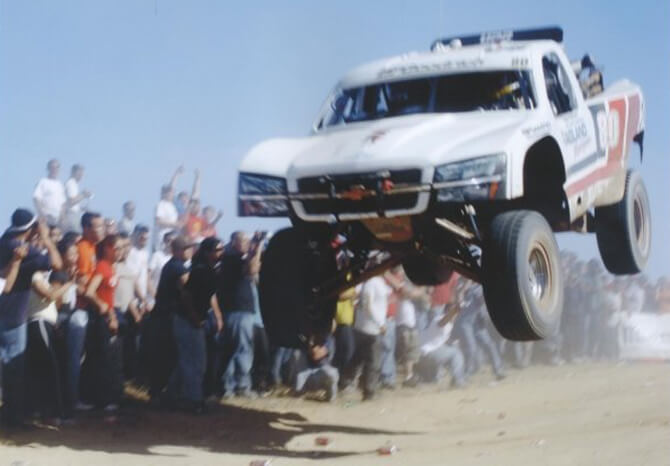
What was the next level for you after that?
It would have been the 2005 Baja 1000 when I was going to drive it with another fellow from Vegas and no one had any expectations of me doing really well. About 200 miles in, I was leading it overall and ended up putting about a 10 minute lead on the field. When I did the driver change to switch, it was my father that got in because we had the best chance of winning so he kind of switched cars.
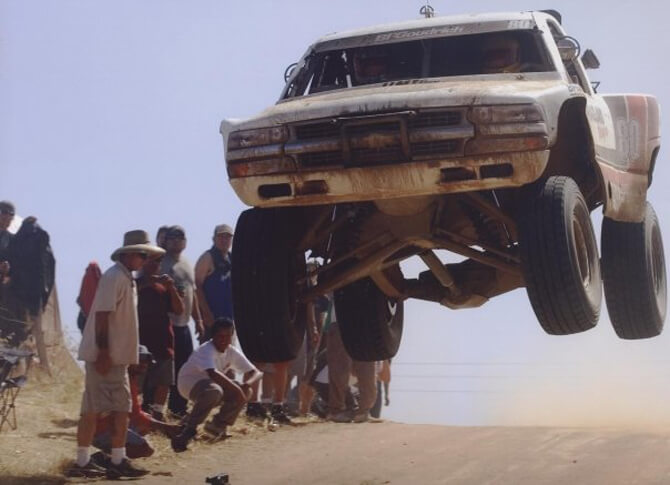
Driving for Collins Motorsports, you went from A team to B team if that gave you the best shot for an overall. I was definitely B team. We led about 9/10’s of that race overall but the car just fell apart. We still finished. I actually think we ended up 4th which proved to Collin’s Motorsports and kind of even proved it to myself that I could run the pace and I was capable of winning. After that yeah, we just started having more success.
Let’s talk about the Toyota T-Force program. How that came about?
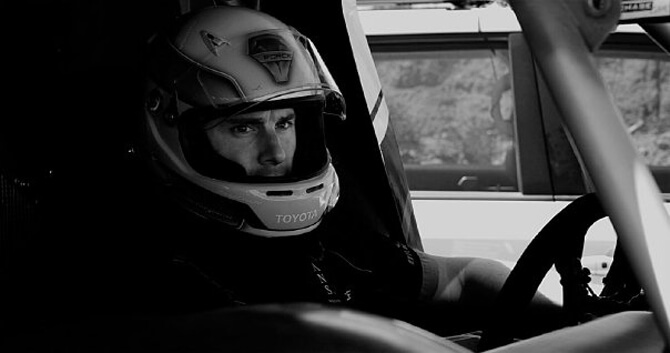
I want to be clear. It wasn’t a factory Toyota program. It gets a little complicated of what Toyota’s roll is in there. Just because the nature of how Toyota does business in America, they have distributors where as American manufacturers don’t so we were really sponsored by a Toyota distribution company. That’s where that came.
Toyota was aware of the program, but it wasn’t a full factory program. We did go to TRD for some parts and stuff, but it was basically funded by an individual. That started in 2006 and that’s what got me to move to California. I was living in Arizona at the time but moved to California for the first year of the program in 2007. I was the driver – lead driver – and also the lead manager. That was probably one of the most stressful times of my life.
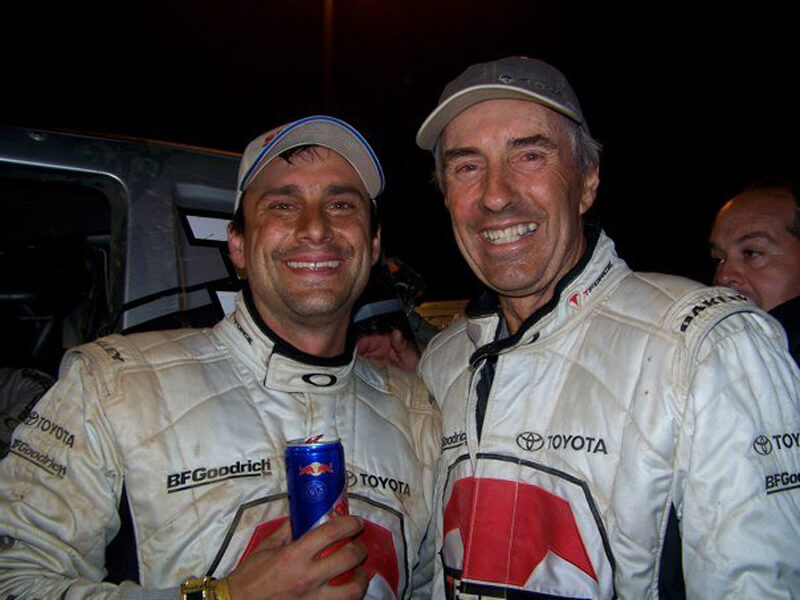
We had a couple really good finishes. I think we got a 3rd overall at our first real race and the program was just kind of developing when they shut us down after 2 years. That ended in 2008. The highlight of that program being a 3rd place overall with my dad in the Baja 1000, which was really neat because I could now be on the A team and drive with him. That was, again like some of those other races we had not planned to drive together, where we were the lead drivers. It was neat.
The Toyota T-force program was one of the most professionally run programs in off-road racing history. Tell us about the program.
They kind of took the approach of, “hey, we understand that this is off-road racing and you guys do it this way,” but most of the people in the program, my crew chief, most of the mechanics, and even just the logistics people, were all from road racing. The director of the program was Danny Sullivan who you know has raced Indy and had good success in Indy cars. He even raced a little F1 and was not used to off-road, I guess.
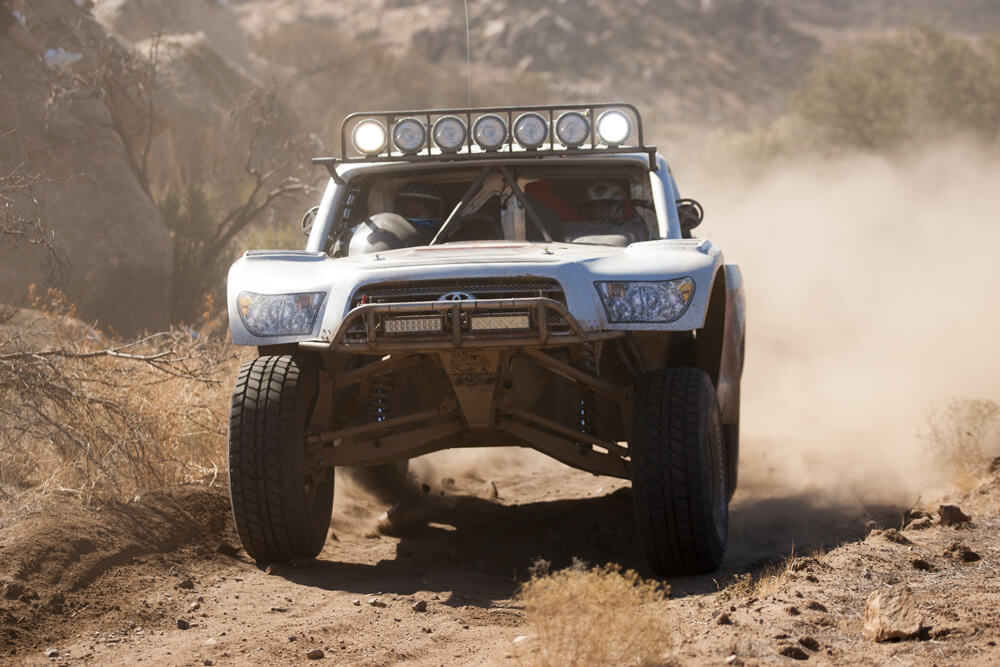
We did approach it differently. I think it showed. Either some people thought we were pompous or other people just thought we were silly and maybe a lot of people respected us. It was run like a business and it was run with the idea that you were here to perform. You always had to answer, there was always accountability. For me as a driver, yeah, it was fun and super stressful at the same time because I couldn’t take that truck out whenever I want. I followed a testing program and training program but I loved it. For me, I functioned very well in that environment so it was great. They had obviously really well funded program. It’s just a shame because they had two trucks and we were making progress. I don’t have any doubt that wasn’t capable of winning some championships for that team. Really good people involved.
Then you parlayed that to a drive with BJ Baldwin, right?
The truth of the matter is, I was driving in my personal truck somewhere and someone called me and said, “Hey, I hear you’re going to race Laughlin for BJ.” I had to call into a radio program to actually talk to BJ and have him ask me. After that, I raced with Baldwin Motorsports for over 2 seasons.
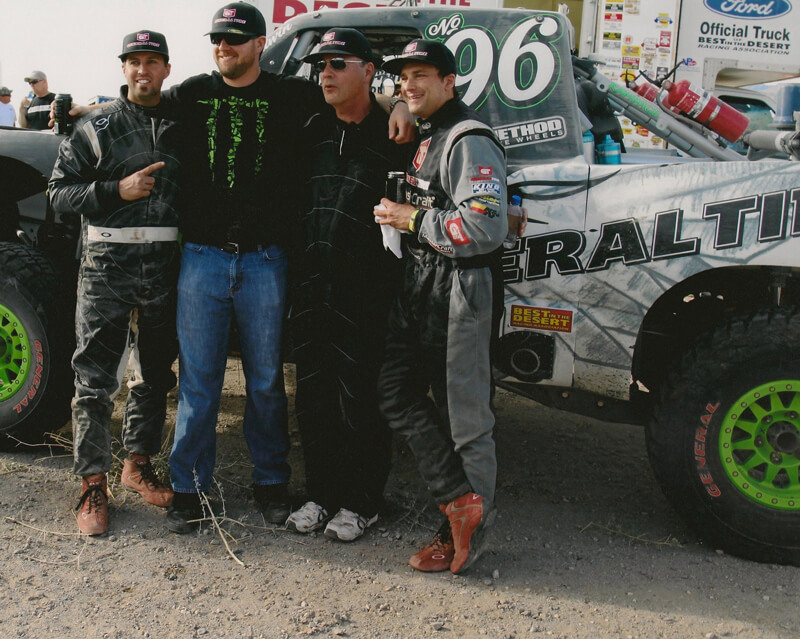
BJ had his own program that got picked up by General Tires at the time and had already won some races so he was getting to be a pretty big name. Someone just called me one day and said, “hey, you’re going to race Laughlin for BJ,” and I said, “I don’t know anything about it.” I said truthfully guys, “I think it’s a rumor.” The next phone call was a radio program that BJ was doing over the air and I just went on live and BJ said, “Hey you want to race with me?” I said, “Sure.” I guess he had plans I didn’t really know about but BJ had to go race Dakar with Robby Gordon.
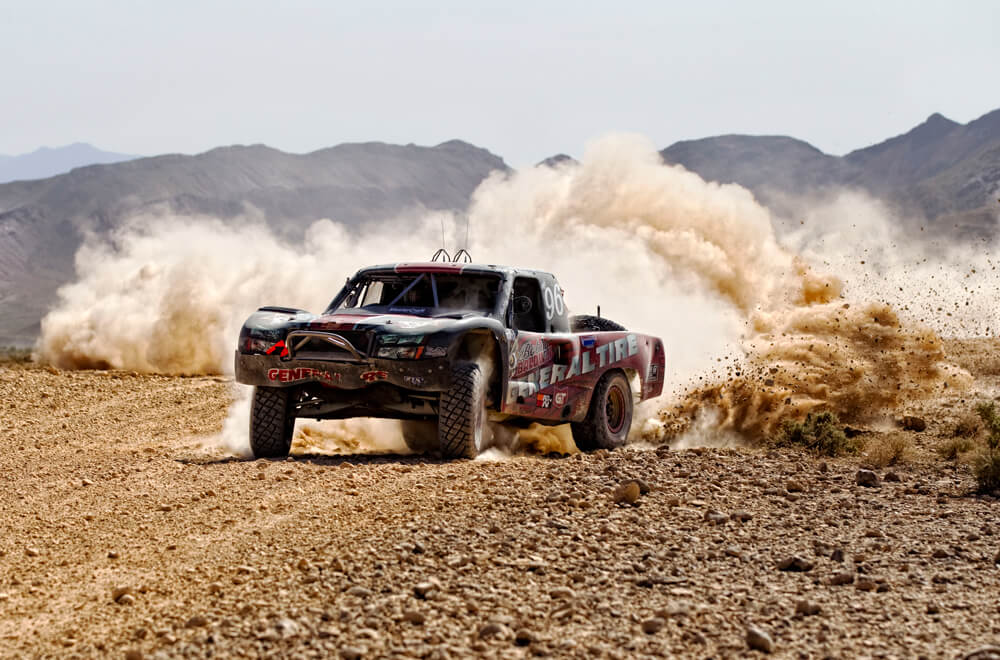
I think that was 2010 when I filled in for BJ. I was 3rd there at Laughlin and gave the truck to him and he had mechanical problems right off the get go. Then I raced for 2 years with him and I think we had two 2nd overalls was the best we did, but again I’m B Team. I’m a very B Team guy on that team. I had some 2nd and 3rd place qualifiers or maybe even a 1st place at one. I had 2nd at the Mint. Real good success, but you know again, I’m not controlling my own destiny I’m working for them and driving for them.
What has been your best memory of off-road racing?
You know off-road racing really is tough because it’s so much work and it’s so hard to get up there on the podium. When you do, you’re exhausted and you know you don’t always realize what a great experience it was until looking back. Some of those races when you’re stuck out there you wonder why you’re doing it. All this dust and all this silliness that we have to go through for off-road racing sometimes you question is it really worth it? When you do have success, it’s so much better that it’s really hard to complain.
That finish with my dad, even though it was a 3rd place finish, we worked really really hard that race. We had a lot of things go against us. We lost half of our lights. My dad had some problems early on. To finish 3rd right behind BJ was a really big deal. I’ve won some other races but that was actually cooler to do with my dad. I knew it was also going to be one of my dad’s last races so that was pretty special. For me probably that moment was my best memory.
Also, the other Baja 1000 when I led so much. I remember going to Laughlin, the very first race after that 1000, and seeing Robby Gordon since that 1000. He just walked over and said, “Hey man, I followed you that whole race, you did really well, sorry you didn’t win.” I’m like okay, now I’m starting to get some respect from some of the people who matter to me in the sport. It’s moments like that. I’ve had so much really good memories of pre-running with just different people and being stuck out there and telling stories. For me of all the experiences in off-road racing, very few have been bad times. There’s some but the good outweigh the bad by so much. It is hard for me to pick one. Just getting hired to go work for T-Force was such a big deal.
What has been one of the biggest moments in your race career?
In 2010, I qualified 2nd for The Mint 400 and took 2nd overall, then went on to take 2nd the next race at the Parker 425. The Parker 400 and Mint are two of my favorite race tracks to go out and compete in. Again, because I was kind of the B team driver racing with Bobby Baldwin at the time, both of those races I pretty much got to qualify and drive all by myself and even though I was really always listed under Bobby Baldwin for driver of record, it was pretty good and that was pretty exciting. Knowing, “hey yeah, we’re still B team but we’re within a minute or two of the top pace there,” felt pretty good.
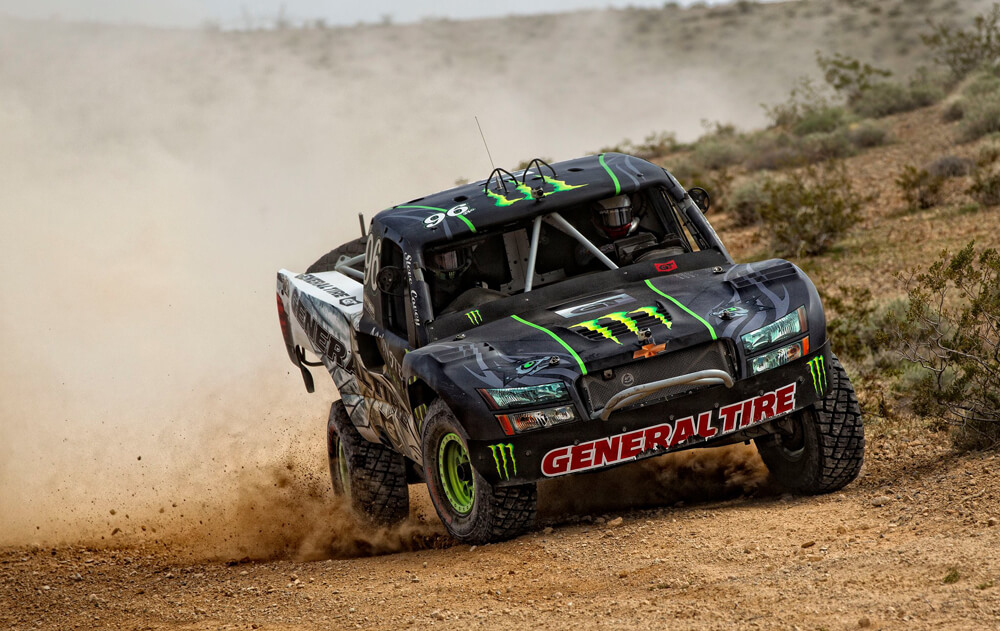
I’ve loved every second of it. Sometimes it’s hard for me because I can get so wrapped up in things I don’t appreciate like the coolness of what I’m doing. I need to get perspective and I usually gain it afterward. Looking back, I don’t know if I’m such a good highlight guy. I’ve been real fortunate and I would have liked to have won every single race that I’ve been in, but I’ve been pretty happy with it. I’ve been pretty fortunate and had more success than a lot of people who have been doing it a lot longer than me.
Out of all the races, what has been your favorite event to race?
It is tough to beat The Mint because the whole feel that race has and how close everybody is. When you get to Baja you spread out pretty quickly and the whole feeling is just different. I love the Mint and getting there and being part of that excitement because you can feel it from the cloud and you can feel it from everybody. It’s incredible. Baja is just a little bit different. You’re a lot more alone. I’d say the Mint 400 for me. When you’re up there at the start line and you’re next to somebody as opposed to just being solo, it’s a great feeling. But the start line at Baja 1000 is pretty incredible too. Those 2 races for me are…. Yeah, there’s nothing that matches that.
What’s the first thing that you would tell people if they want to become an off-road racer?
Oh man. I just had a little kid send me an Instagram message, exact same question. “Hey, I’m working really hard, I drive every day, what advice can you give me?” It’s hard. I don’t have some pre-set answer. You need to be driving or riding as much as you can. If all you can afford is a dirt bike, that’s fine. Get on the dirt bike. If it’s a UTV that’s fine. Things are changing in the world now where if you’re good enough and if you have talent you might get a shot. There’s guys that are racing off-road that are not there because of their talent, maybe even the majority. But we also know there’s guys like RJ and there’s guys that are racing off-road that did have to work hard for their opportunity. Maybe they had some doors opened for them, that’s fine, but it’s their talent that has separated them and I really still believe in that.
Develop your talent. I don’t think everybody’s just got God-given talent. I’m a really big firm believer in hard work and making smart decisions. I don’t think you have to go out there and get a college degree and do it the way I did. For me it worked and it’s what I needed to do, but I really just believe in hard work and doing the driving and understanding cars as much as you can.
Who did you look up to? Who inspired you, mentored you and showed you the ropes?
The easiest answer is my dad. He did it by example. My dad’s not a natural teacher. He’s the opposite of that. I’ll give you a real quick story. The very first race – yeah, the very first race – in Trophy Truck was the Parker 400. I’m with my dad, and I’m just supposed to ride shotgun and learn, and halfway through the race he just pulls over and he’s got like a 10 minute lead, and he tells me to get in, and I’m completely unprepared and I just get in and almost throw it away in the first turn. We still talk about it. I did everything I could to crash the car. I saved it, but it was terrible and we’re on the intercom talking together and I remember going, “Dad, what did I do wrong?” He goes, “I don’t know what you did wrong, but I wouldn’t have done it like you did,” and I remember going, “OK, I know how it’s going to be. I need to pay more time paying attention and learning by example than I do asking questions.” That’s just how my dad was.
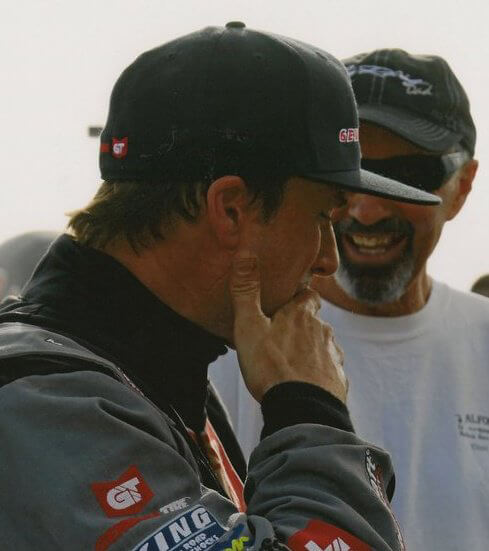
When I think of a mentor, that’s not really the “how to be a mentor program” works. You’re encouraged to ask questions and do that. For my dad it was different. So who did I look up to? I had guys like Malcolm Smith that were my absolute heroes who could be both really successful and really nice guys and also do what they loved to do for a living. That meant so much to me. He was wonderful on a motorcycle. Malcolm was wonderful in a race car and he was the coolest guy to hang out with. I had a lot of people like that that I was really fortunate to be able to grow up with … like Danny Sullivan.
Truthfully, when I was a kid I loved Indy car racing and Formula 1. Danny Sullivan and Rick Mears were guys that I really emulated. I wanted to be in their shoes. I just thought it was the coolest thing, and then later in life I got to work and hang out with some of them. I was just on the phone with Max Pappas. It’s still cool. I looked up to a lot of different guys and I was fortunate that some of them I actually ended up getting to race with and against and be friends with.
Obviously that’s a huge technical advantage being on the inside of it, but nothing was handed to you right?
No, it wasn’t. I can’t think of anyone else really that’s racing off-road that kind of had the same program as me. There’s lots of guys that do have to work real hard. TJ Flores is a really good example of that. He’s wrenched his way there and can compete at the level now with the fast guys. That’s not easy to do and most of it has come where guys have a financial opportunity. Most of the time what you see in off-road is guys with financial opportunity. That doesn’t mean that earning a living here in the US and getting to that point is easy. I’m not saying that. I respect anyone that’s made their money, and it’s not easy to do, but it is also easy to get involved into sports like this where you don’t have a qualification program or a licensing program, where if you have enough money you can go do it.
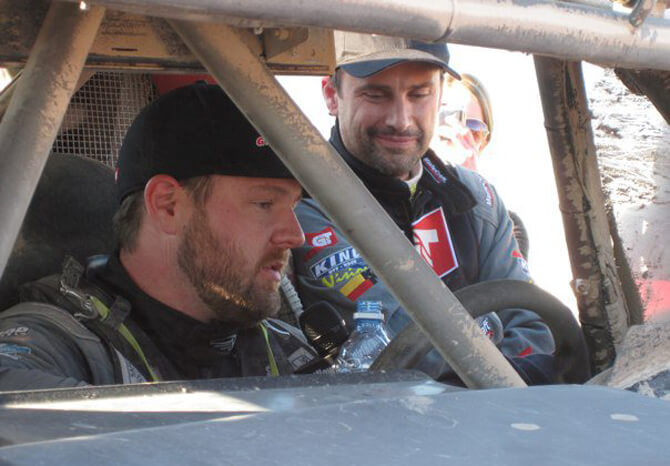
It’s unique in that way, and I don’t want to take away from anybody, but I was just never thrown at it that way. I did get help from guys like Brian Collins and BJ and Bobby Baldwin. I certainly did, but I’d like to think that they chose me based on my performance and my past history.
How did you get into the business side of off-road and why did you choose the UTV market?

My background is in business. Again, starting back when I graduated college and went to work for a mountain bike company and then ended up owning that company, I came away with a degree in economics and had a lot of respect for business because one thing I haven’t talked about is as successful as my dad was in racing, he was just as successful in business. So I got to learn a lot from him from the business standpoint. It was also something I wanted to be successful at. I did that, I owned a financial planning firm for over six years in Phoenix. I’ve done real estate. I’ve done lots of different things so I always really respected smart people in business. I also really missed manufacturing something. That financial planning company was such a service-based business that I missed having a tangible product, like back in the mountain bike day, that we had to produce.
When the T-Force program folded and I had done lots of different stuff here in Southern California trying to make my living, I was hungry to find something that was going to be the right fit. I first got involved with UTV’s through you guys, going to Moab and going to Oregon and doing on camera work and driving. Not only was that super fun but then the business side presented itself. I remember early on in college people trying to teach me career planning and time management and all these things that I could never really grasp my hands around, because to me it was always more important to be flexible and to be able to seize opportunity so that you’re never so stuck in your path that you can’t make adjustment to or change.
When the UTVs came, there seemed to be growing support for them. The acceptance was getting better and the performance was getting better. What I wanted to do to them and what needed to be done to them, that gap was huge. It was just an opportunity, and man, I pivoted and I went head first. I aligned myself with smart people. Again, I can’t say I had any master plan, in no way did I, but I was positioning myself where I could seize the opportunity and that’s all we’ve tried to do – just absolutely seize that opportunity and do the best we can.
How fortunate am I that I’ve had experience with budgeting, running off-road programs, understanding racing, understanding marketing and sponsorship and manufacturing? Again, I was well-positioned for it. Not all by my own doing, I’m not claiming that. I had all these pieces of the puzzle in place but when it came time, I was able to rearrange them so that they did work. For me, that’s always led to success more times than when I’ve tried to think I have everything figured out and stick to a plan.
Are you self-taught or did you go to college for business?
I went to college and got my bachelor’s degree in economics and minor in marketing. I stayed through it. I had to buckle down. I was never the best student. I was never on the honor roll and stuff like that. I had opportunities to go to some good schools in Southern California or go to school in Arizona where I was a resident and I chose that one and I’m glad. It worked out really well for me but college was tough for me. I had to work pretty hard to get that degree.
I think I learned more from doing that. For me, that was the process of learning how to get things done and just buckling down than it was the actual degree. How many pages of material in books do I ever remember? It’s the majority of it, and I never really think that’s what college is about. To me, it’s a process of learning how to buckle down and get stuff done and making it through a process. You’re going to take away some knowledge from that for sure, but to me it was attaining a goal.
Let’s talk about the launch of CageWrx and the products. Why that product? Why that company?
Opportunity. It comes back to opportunity. You know how things go. I was a new UTV owner and I started looking for things. The cage that comes on these things is not very impressive, so then I started asking people that know. I know a guy named Joey from UTVUnderground and Joey goes, “Oh yeah, this is what people are doing. Let me take you over to some of these manufacturers.” So that’s exactly what he did. I had just a few hours in my UTV and Joey’s taking me over to these manufacturers and I was impressed. I saw neat things so I learned and identified opportunities on these vehicles, and then I wanted to become a consumer, and it’s difficult.
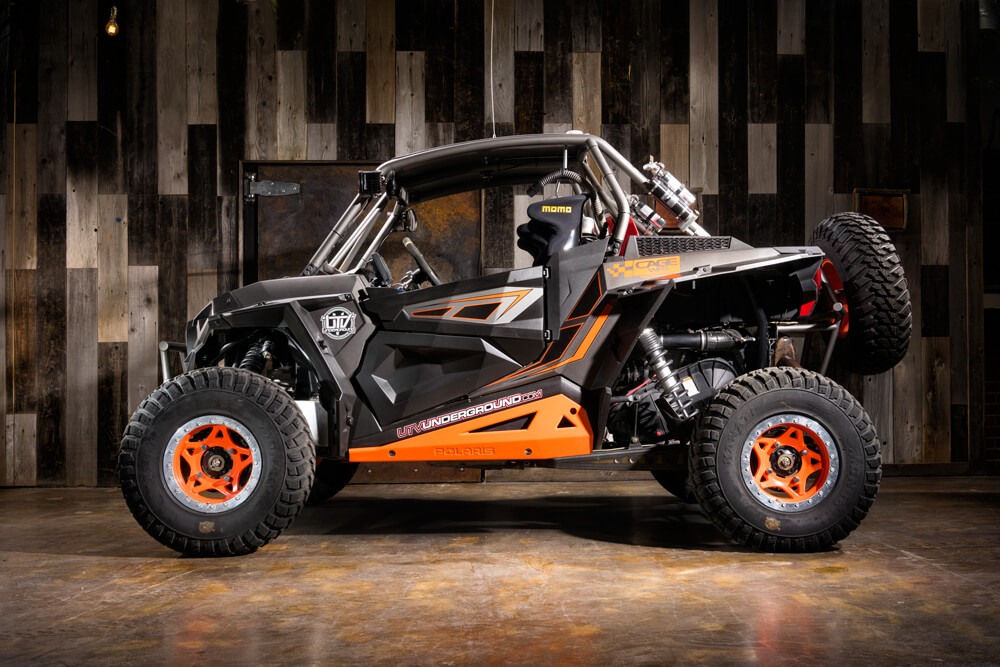
Then the flags start going up. It shouldn’t be difficult, you shouldn’t have to do it this way. You talk to a friend who might have a solution, and he goes, “Yeah, that doesn’t make any sense. It shouldn’t be difficult, you shouldn’t have to wait that long. That seems expensive.” How would you do it? He goes, “This is exactly, I happen to work at this company and we’re making similar products for a different market, maybe we can do this.” It grows, it organically grows, so the answer is opportunity. Because the market had opportunity and it was going to be me or someone else. You take it and you run with it.
Yeah but you did something completely different with having cages that were still to be constructed. So talk about where that idea came from and the success of it because I remember you told me about it, we talked about it and I was like, “I don’t think it’s going to work.”
I’m going to be 100% truthful. Again, it goes back to me maybe not being very smart, but we didn’t know exactly how to sell the product. I didn’t go out there and study how many retailers are there, I didn’t do anything like that. We looked at it from the end product, and we knew there was a better way to make the product, to actually manufacture it, and it wasn’t by doing everything by hand. I always have to preface this by saying I have nothing but respect for guys that can do all this by hand – bend tubes and weld and fabricate – they’re really talented guys, and there’s a lot of really good ones where we are here in Southern California, including ones that I’ve worked with on some of my race teams, but when it comes to production, there were things that really just didn’t make sense.
There’s a Japanese word, muda. It means that being wasteful causes delays, and that’s what causes things to be expensive. I didn’t feel consumers were going to put up with this for such a production vehicle, so talking to my partner Danny Gormican, he’s like yeah, “I can solve it. We can do it this way.” All we thought about was how to build a better roll cage. That’s all we thought about.
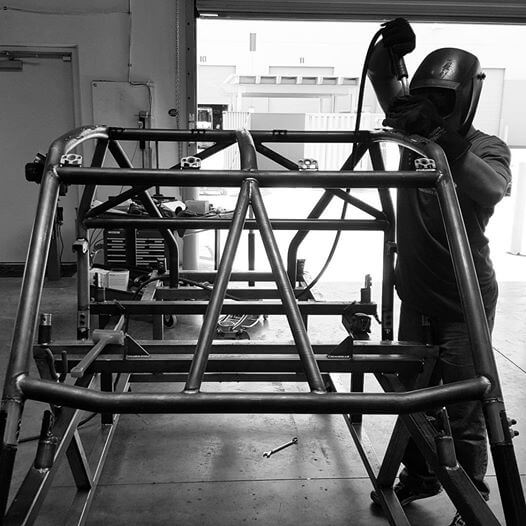
Now we have this better roll cage and we’re looking at it like, “Here’s all the pieces and we have to go weld it together.” We see them and we have to move them. We have to move them to the welder, or we have to transport them. We thought, “You know, we could put these into boxes and we could sell them as a kit. Why don’t we try and do that?” That’s how it came. I didn’t go out there and identify that the market needs kits. Yeah, I was aware that in ’80s Chenoweth tried to do it, and I do know that people can call them knockdown. They’ve been around, the idea, for a while, but we didn’t set out with that goal.
We just thought, “Hey, let’s build a webpage, everybody builds a web page, right? And we can go use some back end on this thing that will help us sell it and take credit cards.” That’s the only way that a little two man operation can survive. What we found out is yeah, there is a demand for this. Yeah, people do want this and it’s successful because the way the product can go together because we’re delivering on what we say. We’re not selling a kit that they really can’t do on their own, that they need to do all these things. We’re delivering what we say and we can ship it all around the world.
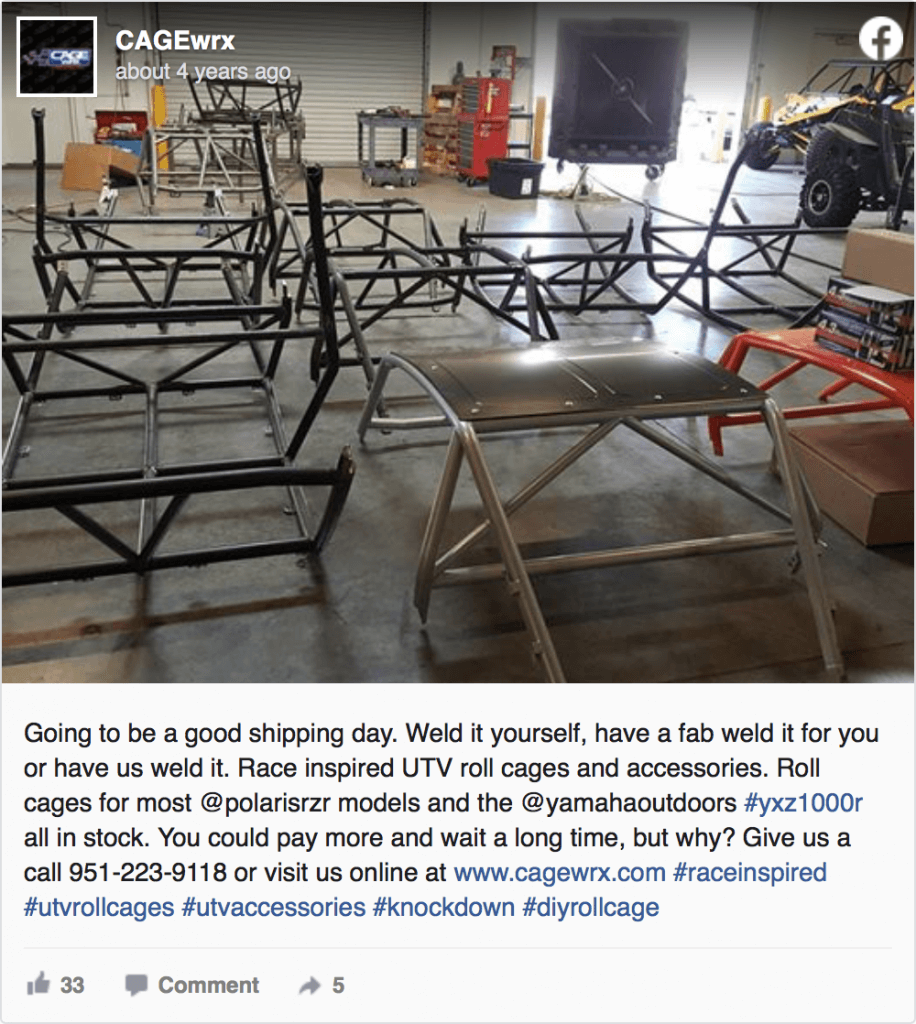
I’m not smart enough to have all this figured out. It presented itself, and we just capitalized on it. As unromantic as that story sounds, that’s the truth. Just by moving these things and realizing that the parts went together a certain way and how compact we could get everything we thought, why don’t we try and ship it like that? That’s where it grew. Otherwise we were just going to try and be another cage builder, so that kind of grew out just on its own. Just existing by trial and error.
You guys are the number one aftermarket cage manufacturer. You’re launching new products all the time, so how do you come up with new product ideas or innovations?
I’ll tell you the truth on this too. For me, social media can be as big a tool to learn from as it can to just be a box for you to stand on and shout out, “Hey, look at me, here’s what I do.” That’s fine, but when you can get to the interactive aspect of it you really learn things about the market, and we certainly did. We made investments into some RZR models that don’t sell at all in the Southwest, but they sell in other parts of the country, and no one was making those products but I learned that from social media, from Facebook and from Instagram and from comments and from inviting people to have a dialog with us.
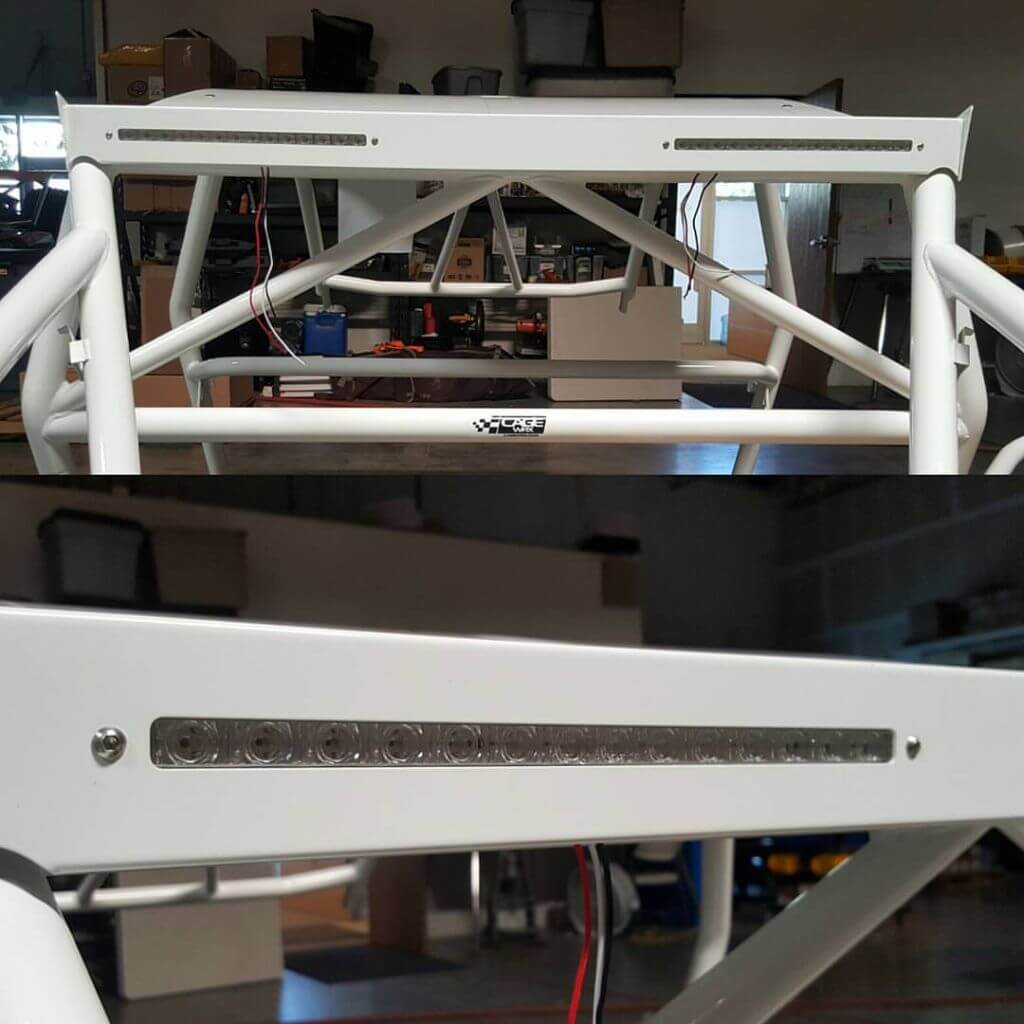
That helps, because we’ve been real successful in some of these other models and markets. I think always being able to listen. Everything that we’ve done has come from either us being on the trail and seeing a need that happened to us directly. Like man, I really need a tire carrier, I need a better jack, so does my buddy on this trip. You learn that way and then from listening to other people, so we’re probably the least flashy company out there. I think more people associate us with quality, simplicity, and ruggedness. That is what we are, but to me those things are sexy and they can be, they can have a lot of appeal. We’re not the blingy products, our roll cages don’t have tubes that don’t go anywhere, and everything’s got a purpose, so once we see that demand we go about it from a pretty practical standpoint of how we’re going to produce it.
What has been your biggest struggle growing your business?
Time. It goes back to me earlier telling you that I didn’t really ever describe good time management. I could put all my time in to the company. There’s things that need to be done and things I could improve on and I could just sit there and do that all day long but I have a kid at home, a wonderful girl, and a new kid on the way.
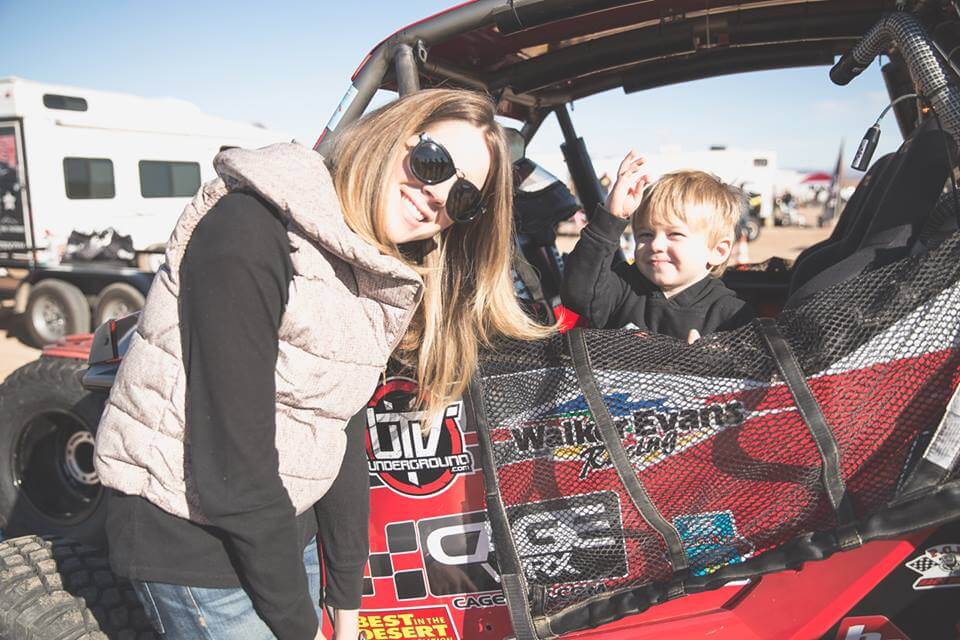
It’s balance. I’m feeling pretty good right now where I still love getting up and going to work in the morning and I love coming home and seeing my family. I’m lucky, even though there’s no free time. My biggest adjustment, to me, has been having to learn how to really have no free time, and I’m going to have to take a little bit time back for myself, because you can’t go that way forever, but it’s fun right now and I’m still pretty fortunate. It’s a struggle everyday. Where is the time going to go and how much do I have and how can I fit it all in?
Has being a businessperson in off-road changed your relationship with off-road culture and racing?
Yeah, I think it has. Maybe it’s a little hard for me to put my finger on it but I really enjoy what we’re doing. Being a race car driver and being involved on a race team is a lot about yourself and “what did I accomplish?” Even if you’re the mechanic on the team, or “what did I do?” You’re working with a team and it’s in a pretty small group of people. When I’m selling to the entire world now, or at least all the UTV owners out there, it’s a really good feeling when you provide a product that someone’s happy with and they tell you how it saved their life in a big crash or how well it went together or how happy they are with the way that it look. It’s rewarding, it really is rewarding.
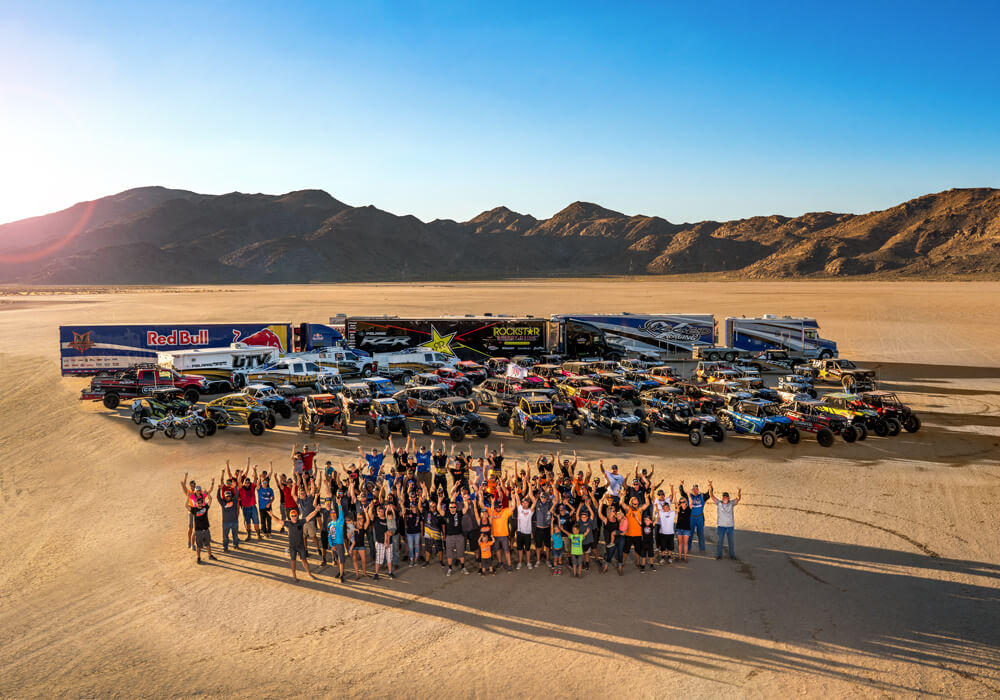
The other end of it is I love the fact that people are using the land! God, America is so weird sometimes in our values. We have such great land. It’s supposed to be used, and sometimes people focus on the way we’re supposed to use it. “You’re only supposed to hike it, it should only be on a mountain bike, it should be done by horseback.” No, you should be able to enjoy it in whatever way is legal and UTVs are and should be. I loved when we did it when we built bicycles, and I’ve ridden a lot of motorcycles in my day, and I’m really happy to be involved in the market. So it’s still really rewarding and I look at off-road a little bit differently now from before when it was like, “Yeah, OK, you’re out here to conquer the desert and all your competitors and it’s just about how quick you can get through this,” to now, “Hey, OK, maybe I can make this product,” or “There’s one of my products in action.”
It changes your perspective. I don’t think it takes away any of the drive, it just changes your perspective. For me, I think for the better.
How has being in the off-road business changed your relationship with your father?
It’s a good question, and I think more than changing, it’s grown us even closer because we both love it and we both get to go out there and have fun with it. Racing, sometimes we were racing together and I wouldn’t even hardly see my dad before a race, and he was a competitor just like anybody else, or he was on my team but in a different car, I better not let him down. We’re driving together. There’s always that dynamic, but now it’s like, OK, hey, we can go enjoy these things. My dad gets a kick out of working on them, all my products, and bolting it on and being able to do the stuff himself.
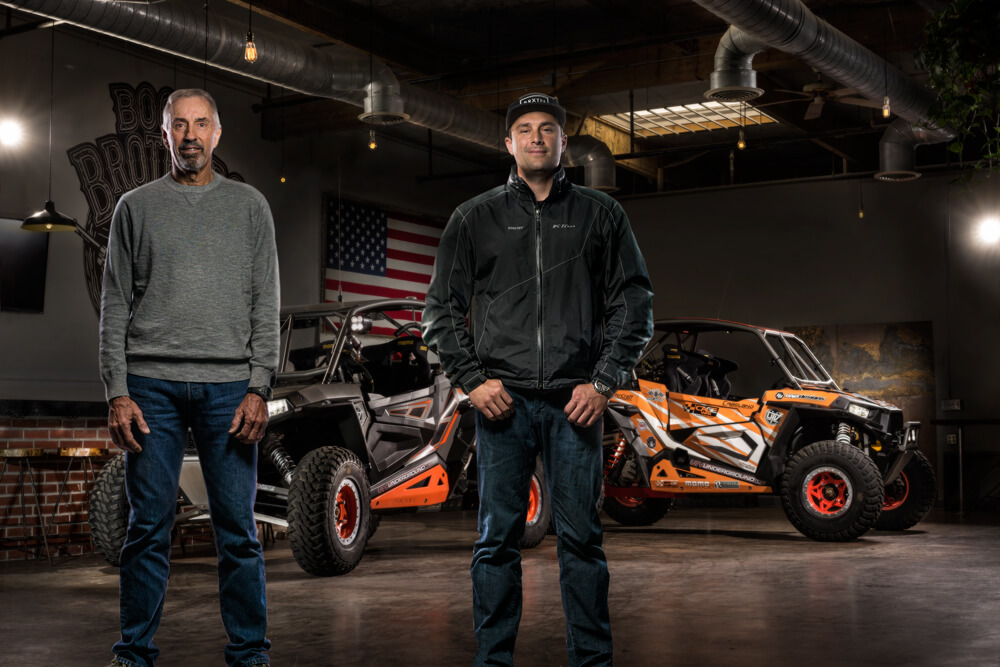
I’m real fortunate that I get to spend as much time as I do with my dad and we still talk a lot. I’ve never been the son of anybody else nor will I, so it’s different, but it doesn’t mean that I don’t appreciate how fortunate I am. I am fortunate, I really am, so I just try and not take any day for granted with him. I think he enjoys it as much, it sure seems like it. We really have a lot of fun together.
Was it hard to break into the business side of off-road or did it kind of just come naturally?
I still feel like we’re an outsider because we do things differently, and maybe that’s a paranoia that I just have built into me, or an insecurity, even. I don’t know, the feedback from our customers is great, and just the feedback and what our growth has been, how many new products we’ve been able to offer.
I feel good in that, but I also feel like yeah, people have been doing this a lot longer and we’re still kind of an outsider. That’s a tough one. I hope we have people’s respect. I’m not the kind of guy that badmouths competition and I believe there’s room for a lot of us, maybe not all of us, but at least the guys that are doing it the right way there should be here, so I want to be one of those guys, and at the same time I want to be an industry leader, where when people come and they want to start talking about roll cages and bumpers and they immediately think of CageWrx. That’s my goal.
What is the most important skill as a driver or as a businessman?
Decision-making. It really is, and that’s why off-road racing is so great. Go back and look at Formula One. Those drivers aren’t allowed to hardly make any decisions on their own. Yeah, they’ve got to make decisions about when to start braking and when to turn into the apex, all that kind of stuff, and that becomes second nature to those guys, but they really can’t plan their own pit strategy and they can’t make too many calls on their own. Off-road racing, you’re on your own the majority of the time, and things happen out there on the race course that no one will ever see, will ever know.
Maybe it’s a plug in the road or a situation that just developed. Something you hadn’t anticipated and you’ve got to make a decision right then and there, or maybe you see one of your competitors, Bryce has a flat over there, BJ’s down over there. You’ve got to decide what you’re going to do to your pace. No one on the radio is probably going to change it or tell you what to do, so I think, and that’s exactly the same in business to me. If something’s happened, the market’s changed, there’s a brand new model, Can-Am has a new model, what do we do? We need to make a decision. Not making a decision is a decision. That’s a decision to be inactive, and for the most time that’s always wrong.
I’m a believer in being prepared, and the more prepared you are the better decision-making ability you should have. I think that’s number one, I really do. Well prepared and being able to make a decision. How many people do you know that just can’t make a decision and it kills them. It staggers them. They’re paralyzed.
I’m not hating on people, but really to me what separates people who’ve been successful. Yeah, it’s one thing to have drive, but I know guys with a lot of drive that can’t ever focus that enough and make decisions to commit to something, so it’s kind of wasted. They’re really good people. I know people that have no drive and they’re fine being followers, but if you can have drive and being able to make decisions, it’s a good combo. It really is a good combo.
You had mentioned a couple other disciplines of racing, and I know that you’re a fan of different forms of racing, so what inspiration have you drawn from other styles of racing?
Discipline, and I think that’s the one thing that off-road racing is missing. There are so many things that it has that other forms of motor sports don’t have. But it’s missing discipline. You see it in Supercross, right? It used to be where you could just be a really good rider with a lot of natural talent and you could go get on a bike and you could do really well. Maybe let’s call that the Bob Hurricane Hannah days, where that existed, where the guy is just so much better than everybody else and he gets on a track and you’re like, “Wow.” You’re blown away.
Then you get on into the Ricky Johnson stage where this guy is taking things a little bit more seriously, the competition is tougher, and they’re really battling out there. Then you’ve got Jeremy McGrath and you start to realize, “Wow, the kid’s got a trainer and he’s working hard.” Now, Ryan Dungey. He’s only as successful as he trains and as his trainers are and as his mechanics are, and that all goes into it and that’s a ton of discipline. I think when the competition gets to that level, that’s where discipline and being well-prepared really pays off.
It’s happening in off-road. It used to be you could buy the best equipment and you could throw enough races at it and you’d probably win one. Now you’re starting to see fewer and fewer different guys win and those are your disciplined guys.
I think there was a couple times in off-road, where I remember every single race had a different winner. There was so much different opportunity for everybody. The teams and competition weren’t as tight. In a way it’s tougher, but in a way there was only maybe a couple finishers at that race that were even on pace. We don’t see that anymore. You look at the finishing times, the top 10 guys are going to be close, and it probably was any one of their battle, so it’s changing and I think that’s discipline. Guys just taking it more seriously.
The original question, I look up to guys that do their homework, that are well prepared and work hard at it. Certainly in Supercross and Formula One. Look at the Formula One drivers’ body sizes. They have to make their bodies fit into these vehicles and maintain body weight where a couple pounds makes a huge difference in those vehicles. That’s as tough as any ballet trainers had to be their whole life on their diet and their muscle training and what they have to do. In fighting, in anything now really, the world is so big and there’s so many people that want to succeed. You’ve got to work hard to be the top. I respect that, I really do. I love guys like Evil Knievel that were one off guys that could just go do it and be successful, whatever, but those days are tougher now. You really have to work hard at it.
What has been the biggest challenge in your career?
I see challenges every day, but … that kind of goes back to the question. In a way, career is kind of funny for me, because I started a financial planning company, I owned a mountain biking company, I’ve done real estate, I’ve been a paid race car driver, so it kind of is all over the board, but I think I could answer it now: my struggle is always not getting down on myself or taking bad news very well. I’m not good at that, it bothers me too much. I think that’s my biggest flaw. It’s an insecurity.
You need to have a thick skin, and I’m getting better at it, but I don’t like negative news very well, and the first thing I want to do is either make it better with the person that’s upset or make it right with me. I’m not going to make people happy all the time. I need to be able to take bad news, maybe criticism, a little bit better. That’s probably my struggle.
Everything else I think you can control, or you can look back and say, “OK, I could have done this and this,” but hey, at the end of the day you’re not going to make something that everybody likes and you have to be able to handle bad news. I just don’t like bad news. Some people that can shrug it off and keep going, and I admire that. I’m not great at doing that. That’s a struggle, because that’s always, no matter what you do, you’re going to have that, so for me it is.
I think that it speaks to the idea that you take the business stuff personally and when somebody’s not happy or you have a failure, it’s personal for you.
It is. I think you know me well enough. I do. If I’m going to do something, I’m going to get behind it with my heart and I do take it personally. I’m not saying that that’s the right way always. I think you have to be somewhat removed and a little bit thicker skin and have confidence that you’re still doing the right thing, so yeah. That has been a struggle.
Now you have a family as well as a business, that take up a lot a of your time, but you’re still racing. Is it hard to work the 60 hours plus during the week, go racing on the weekend, and balance it all out?
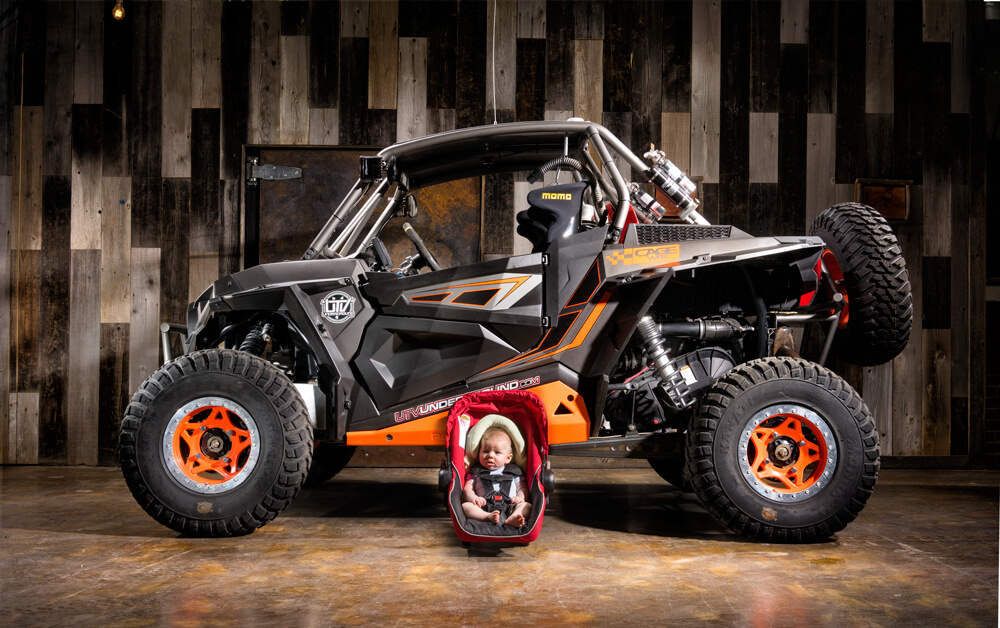
Super hard. Yeah, super hard, and I think anyone that says differently would kind of be lying to you, because everything is personal, again. I don’t want to discipline anybody. I’ve got a great girl who’s really supportive in my racing and my business and a great mom, so what are you going to do? You can’t do everything, but I don’t want to disappoint her. I don’t want to not be with my kid. I don’t want to come home and not be present and have him tugging at my shirt saying, “Let’s go play,” and me telling him, “I’ve got to read and respond to this email.”
It is tough, it’s really tough, but I think you do your best work when you’re pushing like that. When you’re pushed and every second counts, you don’t want to waste any of your time. I think that’s where good ideas come from and some of your best performances come from. It’s a battle, but it is not easy. It is not easy, and it’s the time. Off-road racing is so time consuming to do it right. To go test and to be part of a team and to go to your race takes a big chunk of time, so for me now to do it, there better be some value in it. Yeah, I love doing it, but I better be able to leverage this for the company to get some marketing benefit out of it, and at the same time I need to enjoy it and hopefully involve my family in it.
That’s what I’m up against and that’s what I’m trying to do. Before, it was like, “You race? Let’s go race. Yeah, I’m there, I can do it.” Now I really need to think about it, what am I giving up at the company, what won’t get done, what am I going to sacrifice there, and same with my family.
But it can help, right? Then there’s benefit to it and certainly I think I’ve had with CageWrx. My background is business. I’m not real good about promoting myself and I’m thankful that I have help from people like Mad Media to help do that because I’m not good at it but there is benefit to it, so I want to know now, if I race, yeah, I still get benefit for it.
What motivates you?
That little thing inside that makes you want to be the best. It’s always there. Maybe somebody calls it a hole or whatever, but I’ve just always really had a problem with half-assed efforts. I want to be the best in racing, business, and life. I don’t want anybody to ever say “Chad Ragland half assed it.”
What advice would you give to young people trying to break into the off-road business now?
Well, it goes back to being prepared. For me, I know a lot about it. Being able to put yourself in a position to make good decisions. It’s one thing to be talented. Like I said, there’s lots of really talented guys, but you’re going to have to manage more than just that ability that you have. It’s going to have to be executed correctly.
Be the bookkeeping side of this. Understand the economics. Understand what it takes to be successful because at the end of the day you have to be profitable, or it’s just a hobby and it won’t be successful.
There’s so many aspects so for me. You have to be well rounded. Understand your market, and understand your product and be passionate about what it is that you’re going to produce. At the same time, get educated, learn some of these systems, and understand what a balance sheet is.
You can’t be afraid to learn and that’s what’s great. My partner and I we’re always pushing ourselves to learn more. At the end of the day, what’s stopping you from learning? You can get a computer. You can pull up a YouTube video and you can learn Photoshop. You can learn things that are highly complicated things that, truthfully, are out there for you to learn.
I’m not always saying that because you shouldn’t go to school or whatever but yeah, you have to be ready to learn and accept that hey, you may not be the master right now but you could be. The more education you have, and again, I’m not always super high on formal education, but I think the more knowledge you have the better you are to make these decisions when they come to you and you’re going to have decisions everyday that approaches you. You may not know how big an impact it’ll have until later on down the road.
Just like you, you’ve got to decide what markets and what clients you’re going to take on, what’s the focus and what field you’re going to be in. Those are all decisions that I bet you’ve got to be second nature at, but they’re really a lot more critical that you are probably are aware of at the time.
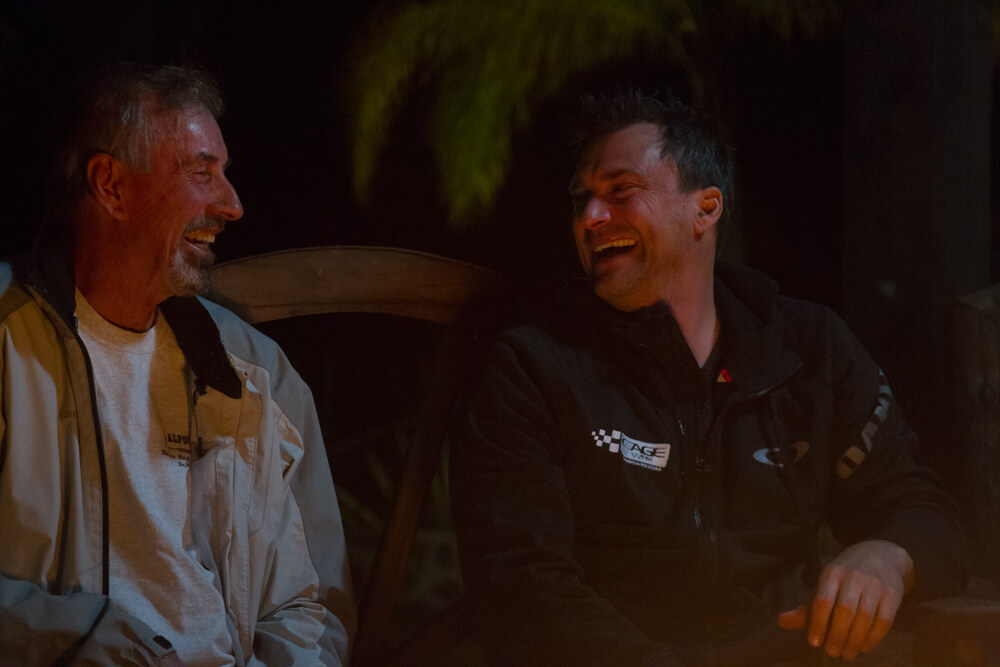
Always learn, don’t stop working. Don’t settle with where you’re at because if you do that, you’re sliding backwards. I enjoy learning and it’s easy to sit back and be like, “I don’t have to worry about this.” Maybe I do need to worry about that. Are you doing it because you’re lazy? That’s the wrong answer.
If it’s because there’s not a need maybe you can just do that, but if it’s just because you don’t want to put the work in, that’s always the wrong answer. People in business, no matter what industry, off-road or whatever, they have to be willing to work hard but work smart and that’s where the education come in.
You’ve seen it with hard working guys. But sometimes they spin their wheels because they lack focus or they lack decision making capabilities. I already assume that if you’re going to be successful in business, you have to be a hard worker and do that as smart as you can and align yourself with smart people.
What do you think we need to do to grow off-road racing?
It’s education because there’s still so many misunderstandings about off-road and what it is. It’s getting the message out. Here’s what we do. Here’s how we do it. Here’s the people that do it. I bet you didn’t know this, and I bet you didn’t know Trophy Truck’s really operated this way, and I bet you didn’t know how smart those guys are that are building that. I bet you didn’t know really how fast these guys work. I bet you didn’t know what this course really entails.
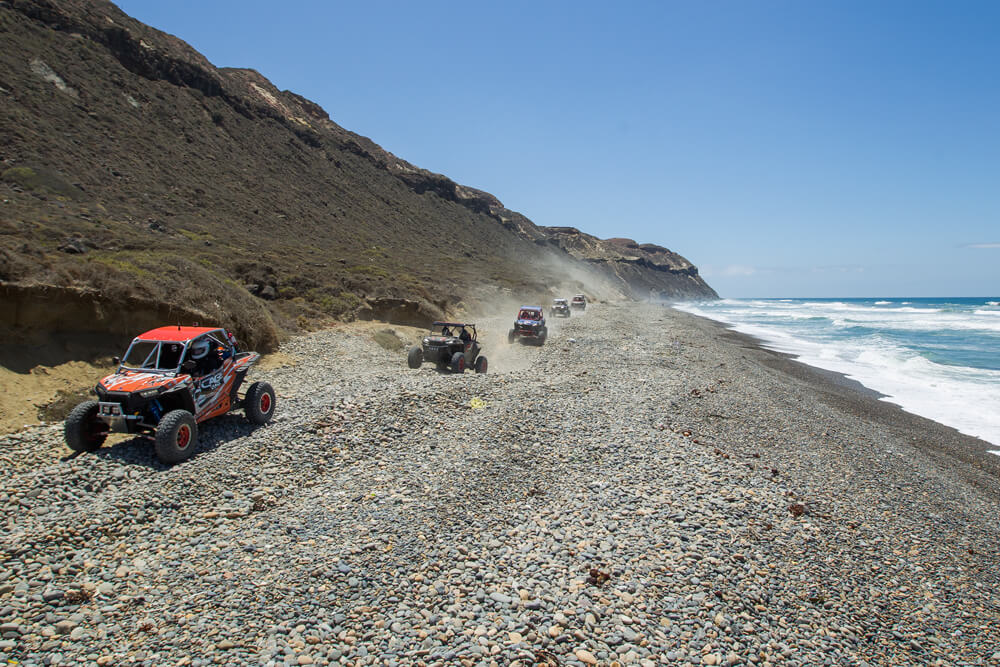
What we need to do is to continue to show people how incredible this sport is that we do and how dynamic it is, how there’s nothing else like it and how difficult it is and how people can participate in it. Man, the UTV is a perfect way to do almost all those because it makes it accessible, but it’s so hard. I don’t know if you heard that other part. Other forms of Motorsports you can lay out a whole track on the screen. You can show every turn and every angle. You can take away the mystery and you can make it so analytical that it’s all in front of you. You could never do that with an off-road race. You just never will. There’s too much course. There’s too many things that change. Everything is a constant variable in there. I mean, it’s a constant changing element to it.
It’s really hard for guys like you to try and show how awesome it is because it’s so multifaceted. Like I said, everything’s changing, but it also means that there’s a big opportunity for us to do that. I think you do it by getting people involved. I think that’s a huge way, and showing them things that they take for granted or that they really don’t understand or they’re just simply not true. I mean, how many guys out there probably still think most of the Trophy Trucks are 4-wheel drive, or that they all have turbo-chargers, or whatever it is. There’s always misconceptions of the way things really are. I think it’s our duty to help people understand better what it is that we’re doing, how we’re doing it, and what it’s like to actually do it. That’s a big challenge.
For me, it’s by taking the RZR and making it one more step closer to a Trophy Truck. It’s getting them to get out there and saying, “Hey, let’s go run some of the same terrain down in Baja that I’ve raced on for my whole life,” and, “Wow, how neat is this? You mean there’s a forest in Mexico?” Yeah, yeah, there is, in Baja, that you didn’t even know about that gets snow. We’re going to go race on these roads. That’s what we have to do.

